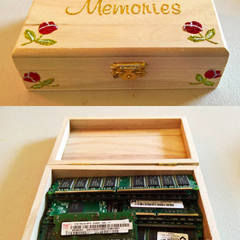Grounding PC
10 hours ago, greenhorn said:I have one of those too, they work well most of the time. Thank you for understanding the little note of caution I put in my last post. I am an electrical engineer but not a qualified electrician, but I have already redone the whole electrical system in one apartment once and had it certified/checked by a real electrician and it was ok. Obviously giving advice from a distance has its shortcomings, that's also why I am cautious.
By the way, in many European countries there was a time when there was no earth wire at all. Back then, it was customary to bridge the neutral and earth connectors in the plugs, but please don't try that, there is a reason that it is now banned here.
I wish you the best of luck with your project. Just take your time and take it step by step.
good news my plugs arrived and one was a 3 pin that fit in the socket so I rewired my PC plug to use the 3 pin plug and plugged it in, then I stroked my hand along the PSU and keyboard and water block and no shocks ![]() ... yet, I'm not yet convinced its fixed but it might be I just hope that in the wall itself that its also been wired up properly.
... yet, I'm not yet convinced its fixed but it might be I just hope that in the wall itself that its also been wired up properly.







.thumb.jpeg.9babd505c85c11addf31a285a02547cc.jpeg)









Create an account or sign in to comment
You need to be a member in order to leave a comment
Create an account
Sign up for a new account in our community. It's easy!
Register a new accountSign in
Already have an account? Sign in here.
Sign In Now